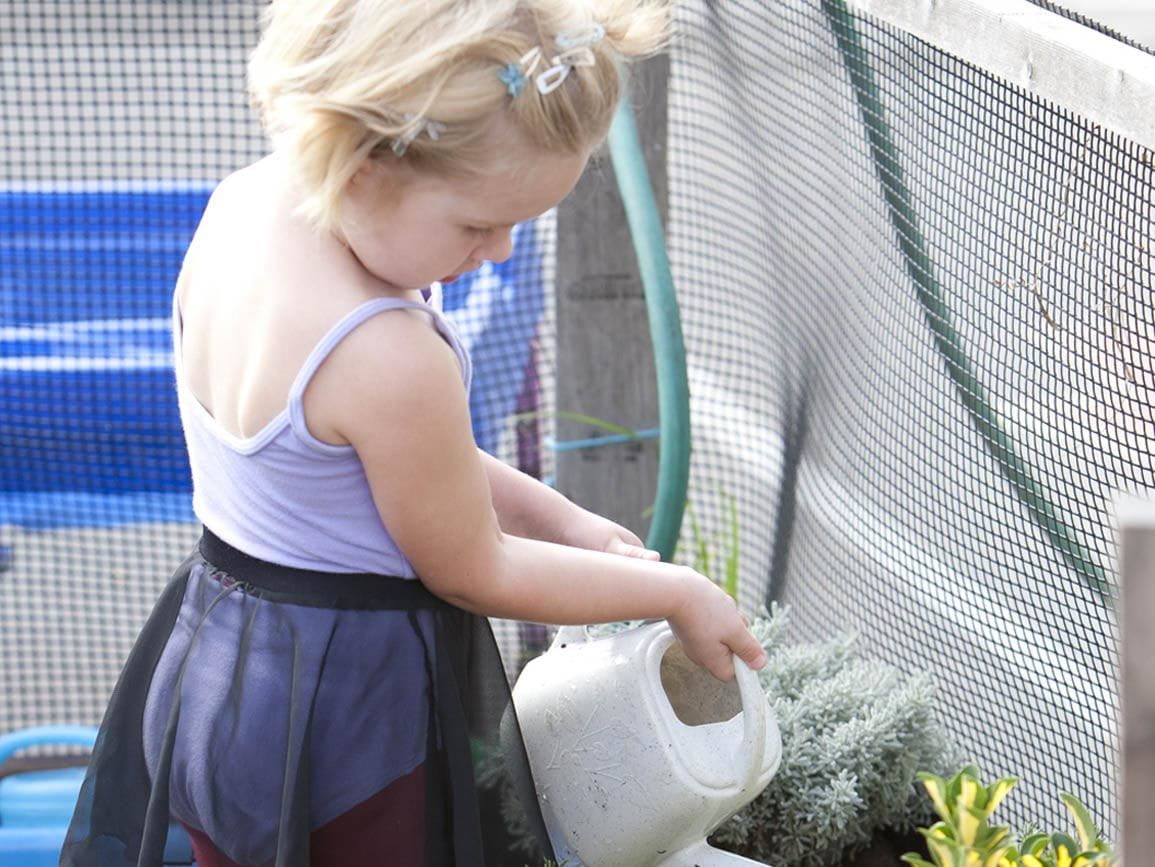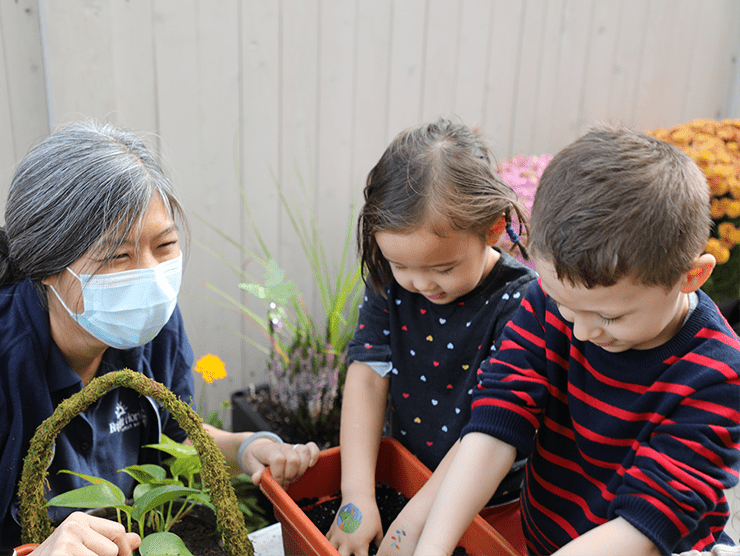The importance of music in early childhood is clear by how much music is woven into the fabric of our entire lives. It is a part of our everyday experiences, as well as an integral part of celebrations, rituals, and ceremonies. Music brings people together and creates shared experiences.
Young children are naturally drawn to music. Infants respond to the soothing sound of a lullaby. Toddlers move their bodies to a beat and bang items together to create sound. Preschool children spontaneously initiate tunes and make up songs.
With children’s enthusiasm for music, early childhood is the perfect time to encourage the development of musical sensibility. From birth to age nine, the mental structures and mechanics associated with processing and understanding music are in the prime stages of development, offering an ideal window to expose children to musical experiences (Dr. Robert A. Cutietta, author of Raising Musical Kids: A Parent’s Guide).
Here are some ideas to integrate music into the rhythm of your day.
MUSIC ACTIVITIES FOR KIDS TO ENJOY
Get involved in a music education program together. Look for a shared parent-child music experience in your community. These programs focus on joyfully exploring music in an interactive, social, and creative way. The classes follow your child’s lead, encourage you to jump in and jointly create music, and do not require you to carry a tune or skillfully play an instrument. The classes explore beats through movement, clapping, and simple instruments such as rhythm sticks, bells, and drums. By focusing on a core group of children’s songs, children develop language skills through repeated exposure to lyrics and sound patterns.
Expose children to various instruments. Some orchestras and chamber groups offer child-friendly concerts. Look for ones that are geared to young children. These are shorter, interactive sessions, where a conductor or storyteller may highlight a specific instrument such as the cello, trombone, or xylophone and allow children to interact with the instrument. Many organizations, libraries, and music colleges offer low-cost or free events within their surrounding communities. Look for one in your area.
If these do not fit into your schedule, try offering musical experiences at home:
Play music. Just playing various genres in your home throughout the day or using music to set a tone—classical or soft music near bedtime, energizing music in the morning—gives your child a feel for how music can impact our mood by helping to inspire, motivate, or relax us.
Move to the music. Almost by instinct, adults sway and move when holding infants. Babies respond to the music in turn by moving as they are able. Hum softly to calm your child as you rock them. Play music for babies of differing beats and tempos and move your child’s arms up and down, or pat their legs to the beat.
Make up rhymes. Toddlers thrive on repetition. Play or sing some of your child’s favorite songs on repeat and encourage your child to join in as she naturally memorizes the words. Toddlers also like silly fun. Once your child has learned a toddler song, encourage them to change the words to make a unique, funny version.
Experiment with instruments and sounds. Collect materials around the house and explore the sounds they make as a part of a fun music game for families. Have each family member create their own instrument from a variety of household materials. Use these instruments to form a family band and play music together. March around the house and build on each other’s improvisation.
Try music lessons. About the age of six, children may begin to show interest in playing an instrument. It is important to allow your child to use instruments to further an understanding of music, rather than focusing on practicing to proficiency. So often, at this age, once the focus changes to proficiency, children’s joy in music disappears. Begin music lessons slowly.
However you choose to bring music into your family life, whether it is simply listening to the radio and singing along, attending live music events or making up silly rhymes and music games, have fun exposing your child to the wide variety of music that exists in our world.
- Parents instinctively use music to calm and soothe children, to express love and joy, and to engage and interact. Learn more about the benefits of music in child development.
- Our early education experts recommend their favorite books for children that introduce the world of math and music. Learn more!
- Music is great for your baby’s brain development. Here are 6 tips to introduce your baby to music.





